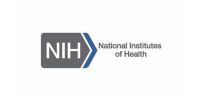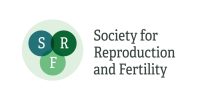The past two decades has witness rapid genomic technology development that has driven the unprecedented volume of biological data and given birth to computational approaches in life science, medicine and agriculture research. Bioinformatics has become essential and indispensable tool in translation medicine, drug discovery and agriculture. Computational exploitation of ever increasing volumes of biodata allow timely diagnosis of emerging pathogens, development of diagnostics tools, novel drug targets diseases discovery, monitoring and surveillance of drug resistant pathogens, development of personalized medicine and improvement of crops in agriculture. Africa is burden with infectious and non-communicable diseases and have participated minimally in genomics research due to critical shortages of expertise in bioinformatics and computational biology.
The Bioinformatics and Computational Genomics Research Group aimed:
• To conduct whole genome and targeted sequencing to generate high quality biodata and identify high risk pathogens and therapeutic targets in non-communicable diseases
• To develop software tools and technologies that makes data visualisation and interpretation accessible to all
• To develop and deliver high quality informatics support, computing infrastructure capable of processing big, complex biomedical data, and storage, and cutting edge tools and resources to enable innovative translational research.
• To produce a sustainable network of individuals who are well trained in various aspect of data science and bioinformatics ready to assume leadership roles at academic, health care and research institutions.
1. Title: H3ABIONET II: Informatics Solutions for H3Africa Consortium
Funder: National Institutes for Health (NIH)
Project Period: 2017- 2022
Summary of project aims: To implement a Pan African informatics infrastructures, provide high quality informatics support, enable and enhance innovative translational research and outreach, development and sustainability of genomics research in Africa. For information, please visit the project website here .
2. Title: West African Sustainable Leadership Training in Bioinformatics Research (WASLIBRe)
Funder: Funder: National Institutes for Health (NIH)
Project Period: 2017- 2022
Summary of project aims: To produce a sustainable network of individuals who are well trained in various aspects of data science and bioinformatics ready to assume leadership roles at academic, health care and research institutions. For information, please visit our project’s website here.
This section covers list of past and current funding received over the past 5 years:
The Burden of Livestock Zoonoses in West Africa
Seroprevalence of Zoonotic Abortifacient Infections in Pregnant Women in Ghana (SEROZAP)
Detection of Polymorphisms in Breast Cancer Driver Genes in Ghanaian Women
a. Ghazal H, Adam Y, Idrissi Azami A, Sehli S, Nyarko HN, Chaouni B, Olasehinde G, Isewon I, Adebiyi M, Ajani O, Matovu E, Obembe O, Ajamma Y, Kuzamunu G, Pandam Salifu S, Kayondo J, Benkahla A, Adebiyi E. Plant genomics in Africa: present and prospects. Plant J. 2021 Jul;107(1):21-36. doi: 10.1111/tpj.15272. Epub 2021 Jul 2. Review. PubMed PMID: 33837593.
b. Kumuthini, J., Zass, L., Panji, S., Salifu, S. P., Kayondo, J. K., Nembaware,V., Mbiyavanga, M., Olabode,A., Kishk, A., Wells, G., Mulder, N. J. and as members of the Sustainability and Outreach Work Package of the H3ABioNet Consortium (2019). The H3ABioNet helpdesk: an online bioinformatics resource, enhancing Africa’s capacity for genomics research. BMC bioinformatics, 20(1), 741. doi:10.1186/s12859-019-3322-3
c. Abukari Z, Okonu R, Nyarko SB, Lo AC, Dieng CC, Salifu SP, Gyan BA, Lo E, Amoah LE. The Diversity, Multiplicity of Infection and Population Structure of P. falciparum Parasites Circulating in Asymptomatic Carriers Living in High and Low Malaria Transmission Settings of Ghana. Genes (Basel). 2019 Jun 7;10(6). doi: 10.3390/genes10060434. PubMed PMID: 31181699; PubMed Central PMCID: PMC6628376.
d. Salifu SP, Bukari AA, Frangoulidis D, Wheelhouse N. Current perspectives on the transmission of Q fever: Highlighting the need for a systematic molecular approach for a neglected disease in Africa. Acta Trop. 2019 May;193:99-105. doi: 10.1016/j.actatropica.2019.02.032. Epub 2019 Mar 1. Review. PubMed PMID: 30831112.
e. Gurwitz K, Aron S, Panji S, Maslamoney S, Fernandes P, Judge D, Ghouila A, Domelevo Entfellner J, Guerfali F, Saunders C, Mansour Alzohairy A, Salifu S, Ahmed R, Cloete R, Kayondo J, Ssemwanga D, Mulder N. Designing a course model for distance-based online bioinformatics training in Africa: The H3ABioNet experience. PLOS Computational Biology. 2017 October 5; 13(10):e1005715-.
f. Mulder N, Adebiyi E, Adebiyi M, Adeyemi S, Ahmed A, Ahmed R, Akanle B, Alibi M, Armstrong D, Aron S, Ashano E, Baichoo S, Benkahla A, Brown D, Chimusa E, Fadlelmola F, Falola D, Fatumo S, Ghedira K, Ghouila A, Hazelhurst S, Isewon I, Jung S, Kassim S, Kayondo J, Mbiyavanga M, Meintjes A, Mohammed S, Mosaku A, Moussa A, Muhammd M, Mungloo-Dilmohamud Z, Nashiru O, Odia T, Okafor A, Oladipo O, Osamor V, Oyelade J, Sadki K, Salifu S, Soyemi J, Panji S, Radouani F, Souiai O, Tastan Bishop Ö. Development of Bioinformatics Infrastructure for Genomics Research. Global Heart. 2017 June; 12(2):91-98.
g. Mulder N, Adebiyi E, Alami R, Benkahla A, Brandful J, Doumbia S, Everett D, Fadlelmola F, Gaboun F, Gaseitsiwe S, Ghazal H, Hazelhurst S, Hide W, Ibrahimi A, Jaufeerally Fakim Y, Jongeneel C, Joubert F, Kassim S, Kayondo J, Kumuthini J, Lyantagaye S, Makani J, Mansour Alzohairy A, Masiga D, Moussa A, Nash O, Ouwe Missi Oukem-Boyer O, Owusu-Dabo E, Panji S, Patterton H, Radouani F, Sadki K, Seghrouchni F, Tastan Bishop Ö, Tiffin N, Ulenga N. H3ABioNet, a sustainable pan-African bioinformatics network for human heredity and health in Africa. Genome Research. 2016 February; 26(2):271-277.
h. Sylverken A, Owusu-Dabo E, Yar D, Salifu S, Awua-Boateng N, Amuasi J, Okyere P, Agyarko-Poku T. Bacterial etiology of sexually transmitted infections at a STI clinic in Ghana; use of multiplex real time PCR. Ghana medical journal. 2016; 50(3):142-148.
i. Yar D, Salifu S, Darko S, Annan A, Gyimah A, Buabeng K, Owusu-Dabo E. Genotypic characterisation of human papillomavirus infections among persons living with HIV infection; a case-control study in Kumasi, Ghana. Tropical Medicine & International Health. 2016 February; 21(2):275-282.
Dr. Samson Pandam Salifu – Group leader, will oversee the group research activities
Mr. Andrews Adu Frimpong – Human genome assembly and systems administrator
Mr. Edwin Moses Appiah – Microbiome analyst and training coordinator
Mr. Biigba Yakubu – Microbial genomes, GWAS and Polygenic risk analyst
Mr. Nicholas Opoku – Human genome variant calling analyst and software
development officer
Miss Isabel Mensah – Single cell genomics and GWAS analyst
Miss Rita Oppong – RNA Seq analyst
Mr. Kinsgley Apusiga – Copy number variant analyst





South-end Asuogya Road,
KNUST, Kumasi
Ghana
GPS: AK-312-1059
Monday – Friday
8am – 5pm
Monday – Sunday
8am – 5pm
KUMASI CENTRE FOR COLLABORATIVE RESEARCH IN TROPICAL MEDICINE
Copyright © 2026. All rights reserved